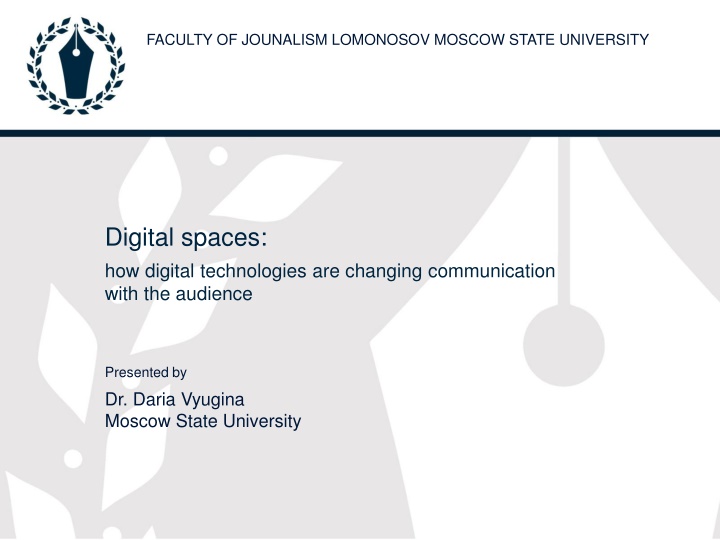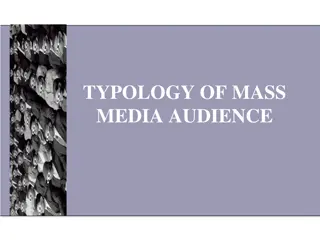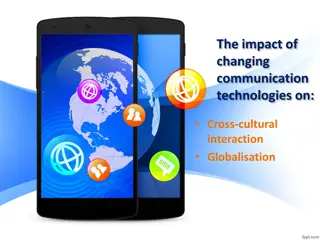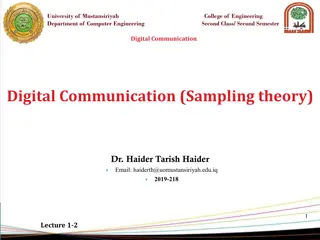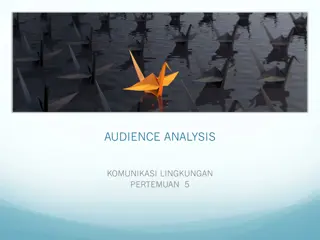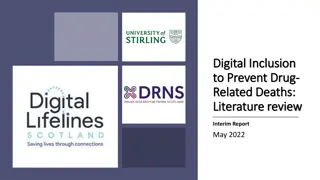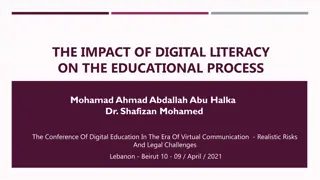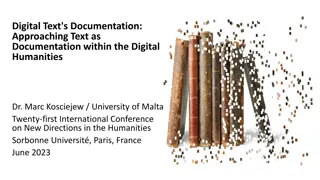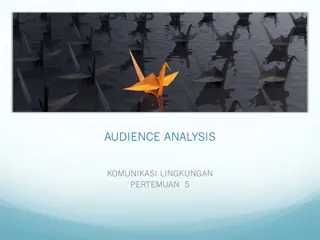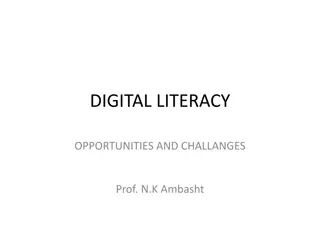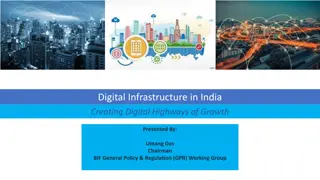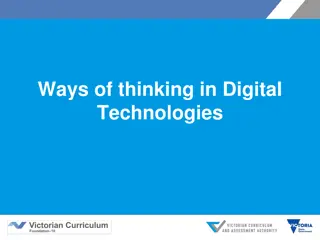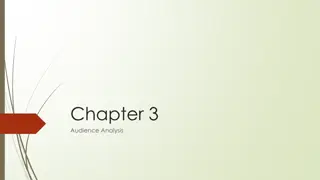Digital Technologies Changing Communication with Audience
The presentation by Dr. Daria Vyugina at Lomonosov Moscow State University explores how digital spaces and technologies are transforming communication between media companies and their audience. It delves into the concept of media dispositive, digitalization of media companies, and evidence gathered from interviews with various media managers. The integration of audio, video, and computer networking technologies in media spaces is examined, showcasing the evolving landscape of communication in the digital age.
Download Presentation

Please find below an Image/Link to download the presentation.
The content on the website is provided AS IS for your information and personal use only. It may not be sold, licensed, or shared on other websites without obtaining consent from the author.If you encounter any issues during the download, it is possible that the publisher has removed the file from their server.
You are allowed to download the files provided on this website for personal or commercial use, subject to the condition that they are used lawfully. All files are the property of their respective owners.
The content on the website is provided AS IS for your information and personal use only. It may not be sold, licensed, or shared on other websites without obtaining consent from the author.
E N D
Presentation Transcript
FACULTY OF JOUNALISM LOMONOSOV MOSCOW STATE UNIVERSITY Digital spaces: how digital technologies are changing communication with the audience Presented by Dr. Daria Vyugina Moscow State University
DIGITAL SPACES Digital Spaces Dispositive Digital Transformation Digitally open spaces in which media companies operate; interconnected spaces without clear boundaries, e.g., between company and user Environment in which media consumption occurs; explanation of effects through elements in this environment and their interaction Media value creation adapts to digital technologies; environments in which media are consumed adapt as well 1 . .
THE CONCEPT OF DISPOSITIVE Extensional Level A decidedly heterogeneous ensemble, including discussions, institutions, architecture, governing decisions, laws, administrative measures, scientific utterances, philosophical, moral or philanthropic theses Intentional Level Dispositional analysis articulates a history of connected social technologies that we have constructed to relate to each other Strategic Level The dispositive strategy decides how the network is formed Foucault, 1978 FACULTY OF JOURNALISM LOMONOSOV MOSCOW STATE UNIVERSITY
MEDIA / DIGITAL SPACES then MEDIA SPACES THEN integrate audio, video and computer networking technology in order to provide a rich communicative environment for collaboration exist in a materially manifested form on an abstract level affected by digital technologies can be defined through the concept of media dispositive DIGITAL SPACES MEDIA SPACES NOW now Dourish, P. (1997). Culture and Control in a Media Space M tterlein, J., & Fuchs, C. (2019). Digital technologies and their influence on spaces. FACULTY OF JOURNALISM LOMONOSOV MOSCOW STATE UNIVERSITY
DIGITALIZATION OF MEDIA COMPANIES Berger et al., 2020 FACULTY OF JOURNALISM LOMONOSOV MOSCOW STATE UNIVERSITY
EVIDENCE FOR MEDIA SPACES Interviews with top mangers of a large (>1000 employees), middle (>100 employees), and small (>10 employees) media company Semi-structured regarding the topic of conceptualizing media spaces, duration 30-40 minutes We have created a digital ac elerator, which builds a new space for each project: Whether it is a website or a social network page; they are tailored to the audience, no matter the product [film or reality show], but they involve everyone and create a new communication level. This tool has shown itself especially well in non-script projects, because they were created based on UGC basically live. Our audience [on Youtube] is not just a community, the platform creates special conditions for interaction, including its own understanding of time, game rules, understanding of honesty and emotions. If you don t analyse how they work, your channel will not be comfortable either for you or for the viewer. In B2B emotional tools work poorly, only a pure functional story works. So, first of all, we try to cover all important topics on all possible platforms, thereby forming an information and communication network, from which, we hope, our clients do not want and are not able to get out. Information Agency CEO Top Russian Blogger Streaming Service CEO FACULTY OF JOURNALISM LOMONOSOV MOSCOW STATE UNIVERSITY
CONCLUSION A media space is a digitally open space in which a media company operates, digitally open meaning, e.g., that there is no clear boundary between producer and consumer etc. Summary This definition is based on Foucault s concept of the dispositive, particularly as applied in media studies, the concept of digital spaces, and reflected in the changing ways in which media companies can create value in times of digital transformation Media spaces as an analytic device offer a new way to grasp the multiple ways and places transformation occurs in media companies as well as their interplay. Contribution The concept highlights puts an emphasis on spaces being open to another in contrast to being delineated from another, expanding the units of analyses to parties that previously were less considered FACULTY OF JOURNALISM LOMONOSOV MOSCOW STATE UNIVERSITY Conceptualizing Media
LIMITATIONS AND QUESTIONS Media spaces are just a first idea of a concept, many open questions remain, e.g.: Limitations How are media spaces formed? Spaces are dynamic; organizations change actively and/or due to resistance as an reaction to transformation endeavours (Raffns e et al., 2016) What types of media spaces exist? Such types could serve as categories for empirical research investigating which type of media space is best suited in a particular situation. FACULTY OF JOURNALISM LOMONOSOV MOSCOW STATE UNIVERSITY
THANK YOU FOR YOUR ATTENTION! Digital spaces: how digital technologies are changing communication with the audience Presented by Dr. Daria Vyugina Moscow State University vyugina.msu@mail.ru
